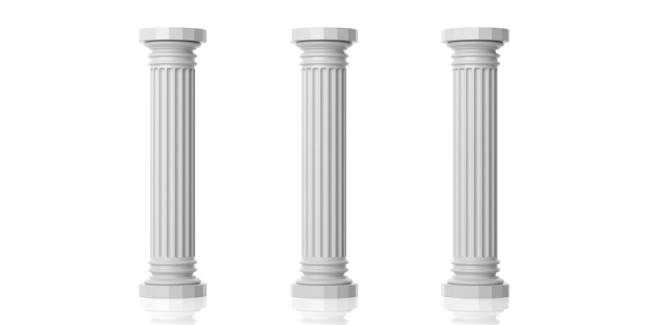You have /5 articles left.
Sign up for a free account or log in.

There are three basic pillars for understanding the boundaries of academic freedom.
Rawf8/iStock/Getty Images Plus
Academic institutions—from kindergartens to universities—have emerged as ground zero for the widening ideological divides in American society. Academic freedom is viewed as being under threat by individuals on both sides of the ideological spectrum, from conservatives who argue that liberals are “hostile” to free speech by conservative voices to liberals who are watching state legislatures ban the teaching of certain concepts, such as the “don’t say gay” bill recently passed by the Florida Legislature and signed by the governor.
Recent events have certainly emphasized why academic freedom is essential to a free and educated society. State officials seeking to whitewash American history and avoid discussion of structural racism, sexism and the legacies of slavery are making a blatant push to censor classroom content. In Florida, the state has even sought to limit professors from speaking as private individuals on political matters on which they have unique expertise.
Yet academic freedom, like so many other ideological principles, can be manipulated, misunderstood and misrepresented. Even more so than the bedrock notion of free speech, academic freedom can become a powerful weapon to be used against vulnerable populations. Why? Because on the other end of a professor claiming academic freedom may be a student—a student who lacks tenure, who must rely on that professor for a grade and who may be emotionally, intellectually or professionally harmed by the professor’s exercise of the power they hold.
Take the case of Nicholas Meriwether, a philosophy professor at Shawnee State University, a public university in Ohio, who cited his religious convictions as reason for refusing to acknowledge a transgender student’s pronouns despite repeated requests from the student to be properly identified. This, claimed Meriwether, was his academic freedom.
To be clear, Meriwether was not leading a discussion on the rights of transgender people, nor was the use of pronouns or gender identity a subject under discussion in his class. Rather, he believed that his personal judgment as to the gender of a student was absolute and his right to speak on the matter absolutely protected. Shawnee State just settled a lawsuit Meriwether filed against the university for $400,000.
For some, these examples lead to a jarring conflict between the desire to support academic freedom and to limit it. Yet it is possible to support the right of faculty to teach about critical race theory and the right of the university to require professors to acknowledge a student’s gender identity—if one understands the origin and purpose of the doctrine.
Historically, academic freedom was intended to protect professors doing research and teaching on matters over which they had unique expertise as “professional scholars.” The 1915 Declaration on the Principles on Academic Freedom and Academic Tenure by the American Association of University Professors noted that the protections of academic freedom for these professional scholars carried with them significant responsibility. According to the AAUP, conclusions propounded by scholars must be “gained by a scholar’s method and held in a scholar’s spirit.” Controversy was a matter to be explored based on scholarship and education and was intended to invite discussion and further exploration. When expressing controversial opinions, the professor should “set forth justly, without suppression or innuendo, the divergent opinions of other investigators; he should cause his students to become familiar with the best published expressions of the great historic types of doctrine upon the questions at issue.”
Academic freedom was not intended to make professors into oracles, with the right to do or say anything they wanted. It was intended to protect controversial ideas held by professional scholars while they were teaching students about those controversial subjects. While reiterating the principles of academic freedom in 1940, the AAUP stated, “Teachers are entitled to freedom in the classroom in discussing their subject, but they should be careful not to introduce into their teaching controversial matter which has no relation to their subject.” An English professor is not guaranteed the right to use his classroom as a platform to teach about QAnon. A professor cannot use a class on educational media to advance his religious convictions.
I propose that this history, as well as the subsequent legal interpretations of the concept, points to three basic pillars for understanding the boundaries of academic freedom. First, academic freedom in the classroom must be understood to protect speech that is germane to the subject of the class. Professors are not oracles or gods. They are professional scholars, with expertise in a particular subject, and protection for their speech should be limited on that basis.
Second, when it comes to expertise, we must pull apart subject matter expertise from expertise in pedagogy. Though it may shock some to learn, many professors have little or no training in or understanding of the science of teaching and learning. Unlike secondary school teachers, who receive hundreds of hours of training and continuing education in how to teach, many faculty members bring nothing other than subject matter expertise to their classroom. For this reason, where it comes to pedagogical techniques, academic freedom does not entitle a professor to do whatever they want in the classroom, particularly if their judgment about what is “good for students” may cause significant harm. Thus, academic freedom did not—and should not—protect a university basketball coach who believed using the N-word was an appropriate way to motivate players.
Third, academic freedom must be understood to protect speech about matters of public concern, not private convictions, religious beliefs or personal vendettas. While Professor Meriwether is certainly entitled to hold religious beliefs with regard to a student’s gender identity and speak on those matters outside the classroom, academic freedom does not protect the expression of his personal religious beliefs in the classroom and certainly not when the expression of those beliefs can cause emotional harm to his students.
Together, these pillars provide a clear foundation for understanding where academic freedom does not exist and where speech in the classroom can be restricted to protect the educational opportunities of all students.
Applying these pillars to the Meriwether case would have led to a distinctly different legal outcome. In siding with Meriwether, a federal appeals court presumed without discussion that Meriwether’s academic freedom gave him the unlimited right to determine the pedagogy of the course. The court then assumed that because Meriwether had unlimited control over the how, he should also have complete control over the what, rejecting Shawnee State’s argument that “the use of pronouns has nothing to do with the academic-freedom interests in the substance of classroom instruction” and finding instead that “any teacher will tell you that choices about how to lead classroom discussion shape the content of the instruction enormously.”
The court added that gender identity is “a hotly contested matter of public concern that ‘often’ comes up during class discussion in Meriwether’s political philosophy courses” and opined that Meriwether’s viewpoint on the use of pronouns “could have catalyzed a robust and insightful in-class discussion.” This alone, according to the court, afforded his viewpoint protection—even though Meriwether did not assert that a discussion about the use of pronouns ever came up in this particular class. The court appears to suggest that if the topic of gender identity is a contested issue in American society, the professor has unlimited discretion to further his adjacent religious belief (regarding the use of pronouns) in any manner he sees fit, regardless of whether that has anything to do with an actual classroom discussion.
This unlimited discretion cannot be what academic freedom requires. Using the same logic, an American history professor with religiously based gender beliefs could refuse to call on female students regardless of whether a classroom discussion follows from the practice.
To be clear, the court also considered whether Meriwether’s interest in having his speech protected overrode any interest of the state in restricting his speech. Yet here again, the court made a glaring error. It assumed that because the student in the case was an “active participant” in the class and received a “high grade,” she had not been harmed. This conclusion is deeply flawed. The emotional damage a student suffers cannot be assessed simply by referencing external signs of achievement. In fact, studies suggest misgendering can lead to profound impacts, including significant psychological distress and feelings of stigmatization.
The right of professional scholars to instruct about controversial topics germane to their classes should be protected, not because they are oracles but because they are experts who hold a unique and important role in a free society. Suggesting that professors are protected regardless of topic and regardless of expertise is a perversion of the original purpose of academic freedom and will only result in widening ideological divides as to the appropriate role and power of higher education in our society.








